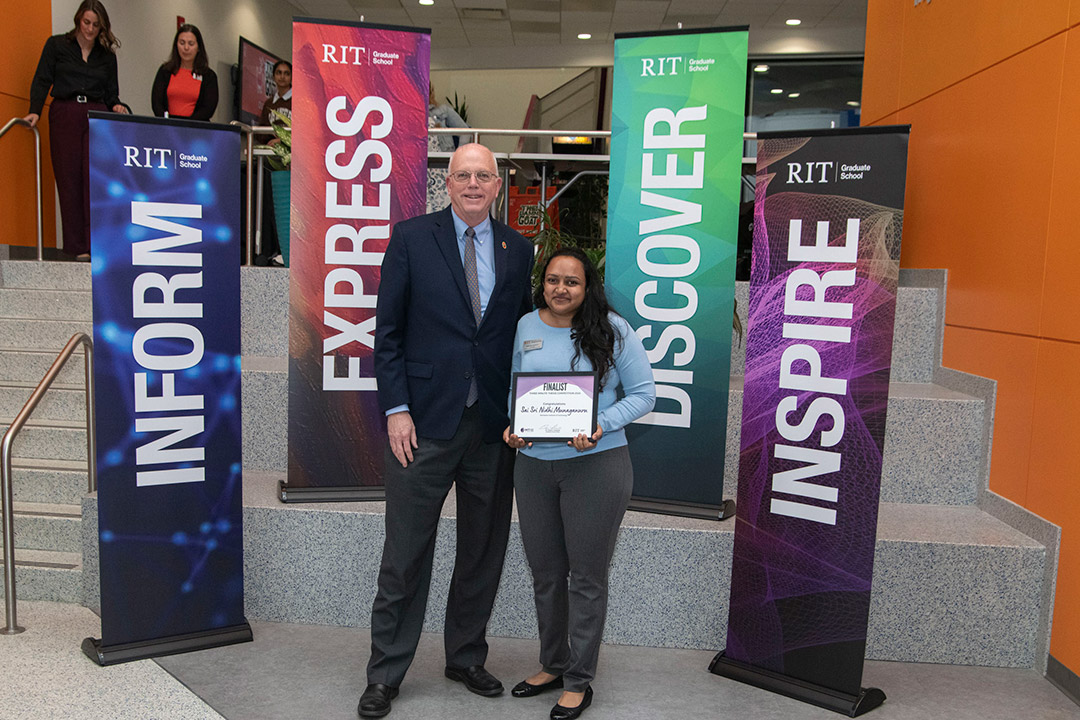Sai Sri Nidhi Munaganuru will represent RIT in regional Three Minute Thesis competition

Christine Heusner
RIT’s Three Minute Thesis winner Sai Sri Nidhi Munaganuru is an RIT mechanical and industrial engineering Ph.D. student. She is shown here with RIT president David Munson at the awards ceremony.
RIT Ph.D. candidate Sai Sri Nidhi Munaganuru wants everyone to know the hidden power of carbon composite 3D printing.
Her talk, “Can carbon composite 3D printing technology revolutionize the world?” took first place and the People’s Choice award at the 3MT Three Minute Thesis competition hosted by the RIT Graduate School. Munaganuru won $1,500 at the Nov. 4 event held at the MAGIC Center’s Wegmans Theater. She will represent RIT in the spring at the regional competition sponsored by the Northeastern Association of Graduate Schools.
Munaganuru, from Hyderabad, India, anticipates completing her Ph.D. this summer from RIT’s mechanical and industrial engineering program. Her work extends the capability of carbon fiber technology through a new manufacturing approach that could eliminate high production costs, waste, and dependence on skilled labor.
Her research bypasses manufacturing obstacles through a series of innovations to produce woven carbon fiber materials. These lightweight carbon composite skins can add strength and durability to everything from airplane fuselages to automobiles to healthcare applications.
Munaganuru arrived at RIT five years ago with degrees in aerospace engineering and a focus on the aerospace industry. The scope of her research at RIT’s AMPrint Center grew when she saw the potential impact 3D printed carbon composites could have across industries.
“What keeps me motivated to do my research is its versatile nature,” Munaganuru said. “This composite material could be used to make many more products like customized prosthetics, UAV drones, and more. My faculty advisor, Dr. Denis Cormier, has been a great support throughout my time at RIT and has provided me with powerful insights that keep me engaged and motivated with my research.”
Three components at the core of Munaganuru’s research include a five-axis 3D printer to improve rotational accessibility, software that analyzes non-planar or irregular surfaces and generates algorithms for the 3D printer, and a modified print head that can print and extrude finely sized carbon fibers. Her method eliminates post processing and enables customized production.
Munaganuru presented her research last August at the International Solid Freeform Fabrication Symposium in Austin, Texas.
The Three Minute Thesis competition helps Ph.D. students communicate their complex research in a succinct and accessible way. The University of Queensland in Australia established the competition in 2008. Today, more than 900 universities in 85 countries participate in the Three Minute Thesis.
The full list of award winners and judges can be found on the RIT Graduate School website.









